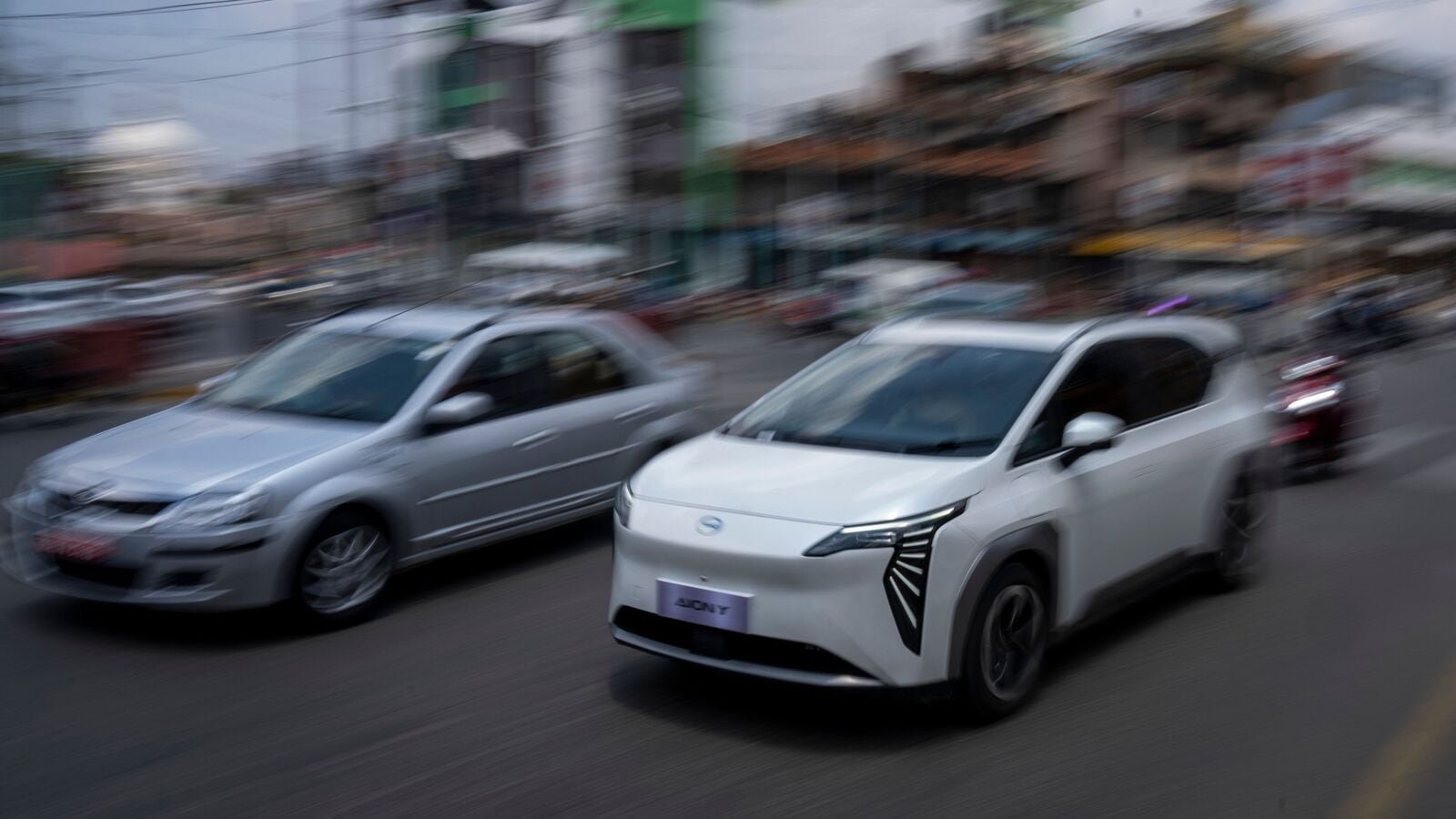Official data on sales are not available but Chinese automaker BYD Atto 3 and Tata Nexon EV appear to dominate sales of electric passenger sedans in N
…
Nepal’s abundant hydroelectric power is helping the Himalayan nation cut its oil imports and clean up its air, thanks to a boom in sales of electric vehicles.
Nearly all of the electricity produced in Nepal is clean energy, most of it generated by river-fed hydro-electricity. Thanks to that abundant source of power, the country is quickly expanding charging networks and imports of EVs have doubled in each of the past two years, according to customs data.
The Nepal Electricity Authority estimates use of EVs has reduced oil import costs by USD 22 million a year, and the savings are increasing.
Access to electricity in Nepal has soared in the past three decades as hydroelectric projects were completed. Now all but 6 per cent of the population can reach the country’s fast-expanding grid. That is enabling the country to leapfrog its neighbours in adopting EVs.
Nepal so far has the peak capacity to produce 2,600 megawatts of power and that is increasing as new hydropower plants are completed. A very small amount of power is also generated by solar plants.
“Our electricity in the grid is from hydropower so it is clean energy. And so Nepal is ideally placed to use electricity to run our vehicles in the best way it should be, which is that the energy source itself is clean. It is not coal, gas or nuclear or petroleum,” said Kanak Mani Dixit, a leading environment and civil rights activist.
Official data on sales were not available, but Chinese automaker BYD’s Atto 3 and Indian maker Tata’s Nexon appear to dominate sales of electric passenger sedans.
Also watch: BYD Atto 3: First Drive Review
Nepal has made boosting use of EVs part of its national commitments to curbing climate changing emissions, pledging to raise EVs to 25 per cent of all auto sales by 2025 and 90 per cent by 2030.
To help drive more sales, the government is charging lower duties on imported EVs, ranging from 25 per cent to 90 per cent. The import duties on gas and diesel-fueled vehicles are 276 per cent to 329 per cent.
Nepal also has been quickly adding charging stations. Sagar Mani Gnawali, who head the agency’s department in charge of Electric Vehicle Charging infrastructure Development, said Nepal now has 400 charging stations and the number is expected to double within a year.
Jyotindra Sharma, a cardiac surgeon who has been driving an EV, a 2019 KIA Niro, for four years, says he is glad to know he is helping reduce the smog that poses severe health hazards in the Kathmandu valley.
“I am extremely happy using an electric vehicle because I could contribute to the environment compared to the petrol cars,” he said. “The electricity cost for charging and everything is much less and I got a much, much more luxurious car for the same price compared with gas-fueled cars,” Sharma said.

EV enthusiasts also include drivers of small public vans who make their living ferrying passengers around the city and beyond.
“It is very easy to drive, there is no pollution, and it’s good for the environment. Not only that, it’s good for the country as the nation’s money does not go to foreign land to buy oil. There are benefits all round,” said Bhakta Kumar Gupta who drives people from Kathmandu to southern Nepal and back everyday.
Also Read : Is your electric vehicle truly clean?
Gupta replaced his diesel-run van with an EV the same size that can carry 10 passengers. It cost him USD 40 to buy diesel every day. Now, he says it costs about USD 6 to charge his van.
But while hundreds of small EV vans ferry passengers on short routes, Kathmandu has very few EV buses and none connect the capital with other cities. Pollution from buses and other vehicles and from burning fuels for cooking and heating made Kathmandu one of the world’s worst polluted cities for several days in April, as the government warned people to stay indoors.
Shifting to more EVs is crucial, said Dixit, the environmental activist.
“We desperately need that for the sake of our health and for the sake of our economy’s health, individuals’ health and our lungs as well as our national health,” he said.
First Published Date: 06 Jun 2024, 12:02 PM IST

